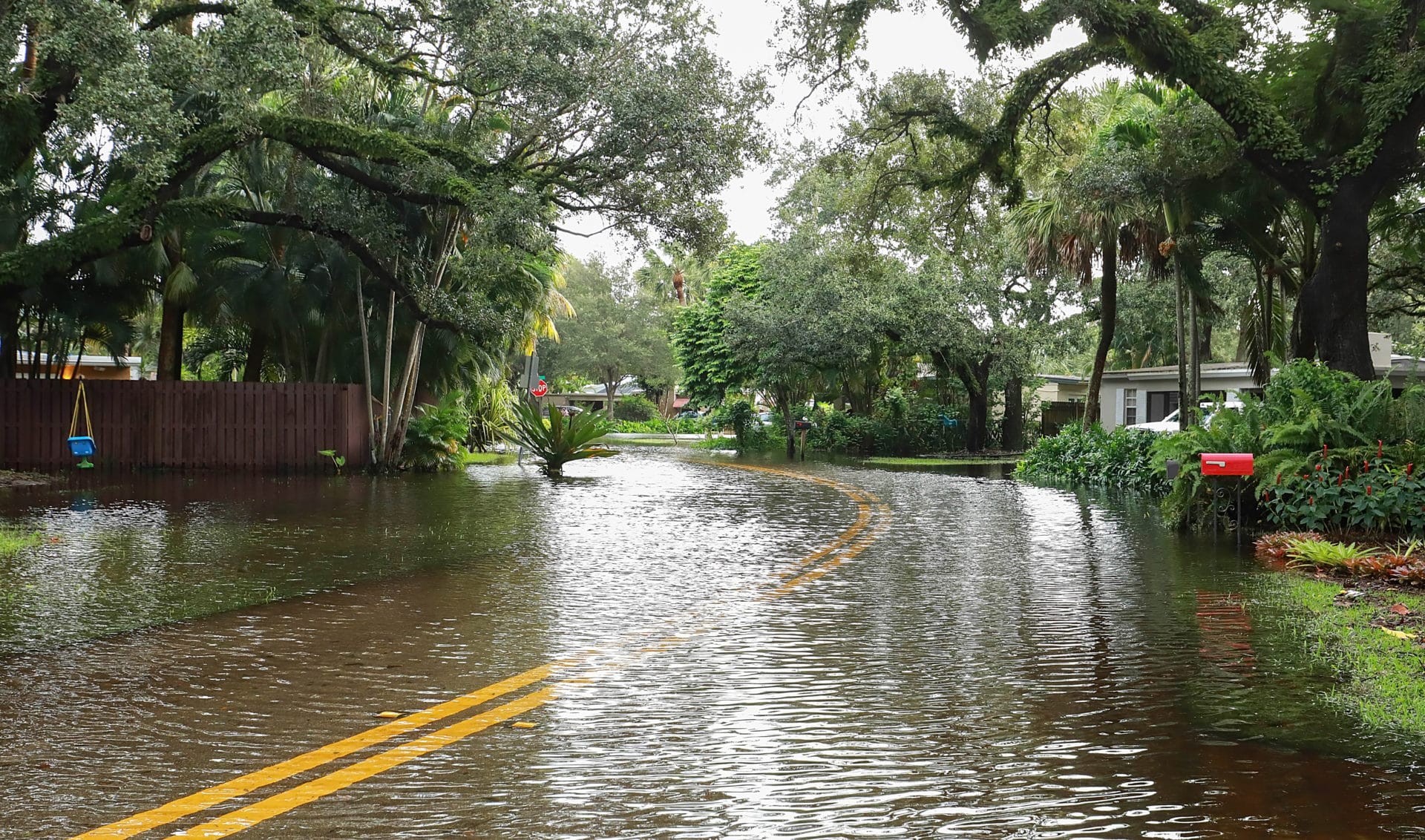Meteorologists predict a 49% chance of a hurricane hitting the Gulf Coast, and NOAA is predicting above-average hurricane activity this year. For many of us Floridians, this may seem like just another year of making something out of nothing, it does not hurt to be prepared should a strong hurricane or tropical storm make landfall here.
The first thing you should do to prepare for a storm is to determine whether your house is in a flood zone. I will share how to do that and some more hurricane season tips so you can ride out the next few months knowing you have done what you can to prepare.
How To Tell If Your Home Is in a Flood Zone
Uncovering whether your home is in a flood zone is simple: type in your address into FEMA’s flood map.
The map will then zoom in on your location and provide you with your area number and the date the map went into effect. You can even download the map if you would like.
The map will indicate flood-prone areas in blue. Brown areas are at risk of flooding as well. In Tampa, areas close to sea level will be at most risk.
Try it for yourself. Go to https://msc.fema.gov/portal/search and enter your address.
Not sure if you need flood insurance? FEMA recommends it, even if you are not in a flood zone.
9 Tips to Prep for Hurricane Season
Even with hurricane season underway, it is not too late to make sure your home is protected. Follow these tips to prepare before the next tropical storm gets named.
1. Update Your Home Insurance Policy
If you have not updated your home insurance policy since you got it, now is the time to update it. You will want to make sure you have enough coverage based on the value of your home and your possessions. If you rent, update your renter’s policy.
2. Check Your Flood Insurance
If you are in a flood-prone area, have experienced flooding in the past, or have neighbors whose homes have flooded, be sure that your flood insurance is up to date. Do not have flood insurance? Get a policy, ASAP! Home insurance policies do not cover flooding from hurricanes. This means you could be left with thousands of dollars of damages if your home floods and no means of recourse.
If you are currently living in a rental, you may want to consider your own flood insurance. While the property owner may have flood insurance, it will not cover your possessions. FEMA recommends contents-only flood insurance for renters.
3. Inspect Your Roof
Check that your roof is in good condition at the beginning of hurricane season. If there are missing or torn shingles, make an appointment with a roofing company to have them repaired. A healthy roof can reduce the chance of leaks and wind damage to your home. After a storm comes through, do another inspection of your roof to ensure it hasn’t been damaged.
4. Trim Back Trees Close to Your Home
High winds can turn anything into a projectile. Trim back trees that are close to your windows and roof to minimize the chance of damage. Remove any dead branches as well. If you have a tree that looks like it is sick or dying, have a specialist check it out to see if it needs to be cut down. That way, it will not fall unexpectedly during a bad storm.
5. Clean Your Gutters
Protect your home by ensuring water is running where it should. Clean your gutters so storm water is directed away from your home’s foundation. Make this a regular part of your home maintenance to reduce potential flooding.
6. Refresh Your Emergency Kit
You should check your emergency kit every year. Toss out any expired supplies (or use items that will expire soon) and replace them with new items.
Your emergency kit should include:
- A battery operated or hand crank radio
- A first aid kit
- A battery operated or hand crank flashlight
- Nonperishable food
- Water
- Your evacuation plan
To learn more about how much food and water you should pack and what other items to include in your preparedness kit, visit the Tampa city website.
7. Make an Evacuation Plan
Where will you go if the Tampa area needs to be evacuated? Check out the evacuation route for your area and talk to your family members about where you will travel to should the need arise.
8. Keep Your Important Documents Together
As part of your emergency planning, check that you have all your important documents together and that you can access them quickly if you need to leave your home. You will want to have personal identification such as passports, social security cards, and birth certificates; your home ownership documents like the title to your home and your home insurance and flood insurance policies; and other important deeds or titles.
9. Fill Your Gas Tank
Before a landfall becomes inevitable, make sure the vehicle you plan to use for your evacuation plan has a full tank of gas. I recommend doing this a few days ahead of time to avoid the last-minute lines at the gas station.
Plan Just in Case
Tampanians who have weathered many storms may see another hurricane season as no big deal. However, with storms growing in intensity and frequency, it is a good idea to be prepared should a large storm make landfall on the Gulf Coast. Fingers crossed for a mild hurricane season — but be prepared, just in case.

